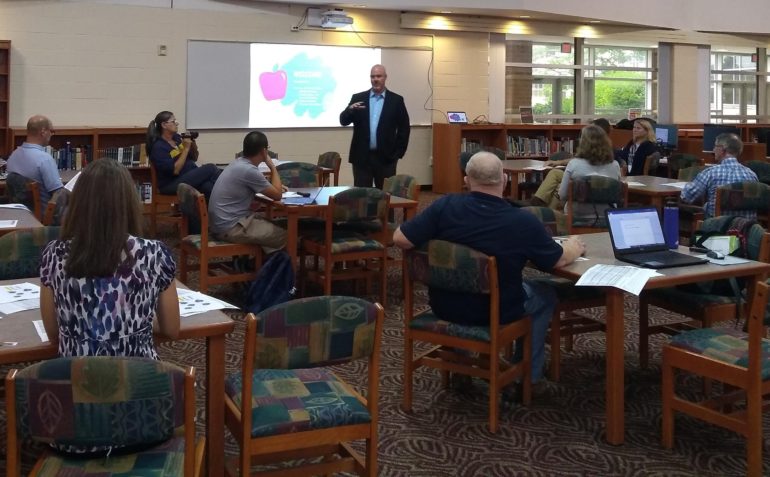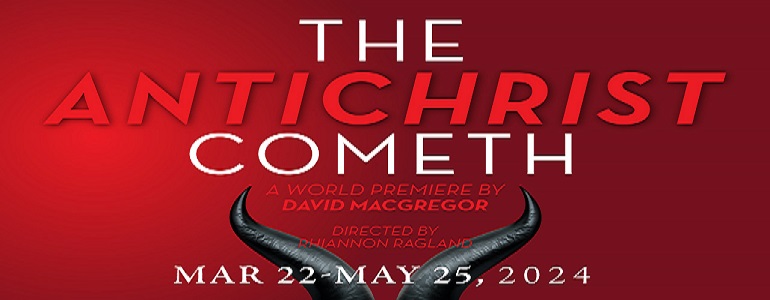On Tuesday, Sept. 10, Superintendent Chris Timmis led the first of two much-anticipated community forums regarding the Board of Education’s discussion of pay-to-participate athletics. Following a short presentation, Timmis opened the meeting for audience questions.
Q: Why do families pay the same fee for a sport with a smaller cost to the District (i.e. cross country) as they do for a sport with a higher cost (i.e. football)? Could the District assign fees based on an individual sport’s overall cost rather than a flat fee?
There are several factors that dictate the cost of a sport and those costs fluctuate year to year. Coaches’ salaries differ based on experience and whether or not they are also a teacher, due to the addition of retirement costs. The timing of the sport also matters in its overall cost to the District; fall sports collect 1st sport fees, so may cost less to run than a spring sport which often collects lower 2nd and 3rd sport fees. He ended by saying the District could consider the suggestion.
Q: Why did the cost of Athletics go up 15% from 2017-2018 to 2018-2019?
Two reasons – bussing and coaches. DCS does not have enough bus drivers to drive athletes to after-school sporting events and get all other students home at the end of the day. The District has plenty of busses but not enough drivers, which is a country-wide problem. Bus drivers at Dexter are paid one of the highest rates around, but being a split shift job and with the availability of jobs with better hours for the same pay, not enough people want to drive school busses. As a result, many of our sports teams are being bussed to away events by charter buses which cost $600 per event.
In addition, a sport like middle school track, which had 184 students participate last year, needs more coaches and more buses to accommodate that large number.
Q: Could the District use passenger vans to transport some of the smaller teams to away events?
Dr. Sharon Raschke stated there are limitations in the transportation of students. Anyone driving a passenger van must have a CDL, and state law only allows for the usage of 10-passenger vans. Dr. Timmis shared that DCS has tried to rent vans in the past, but can’t find anyone to legally drive them.
Q: A parent shared her student is a senior and she was not aware a self-funded sport could be considered a 1st sport and the next sport eligible for the reduced second sport fee. Has anyone crunched the numbers about not offering credit for self-funded sports?
Changing the fee structure is not an issue of revenue, but one of equity. When the graduated fee structure was put into place, the BOE determined that if a student played a self-funded sport first, they received credit for that sport. The BOE would have to revise that policy, which Timmis said is always an option.
Q: Having the two classifications of teams – self-funded vs. school-funded – seems inherently to be an equity issue. Could the District bring all sports under the Athletics umbrella as school-funded?
Timmis responded that several attorneys have looked at the team classifications and say that the District is okay to have both self- and school-funded sports. It would cost $170,000/year to bring the current self-funded sports under the Athletics umbrella.
Q:What would the District have to cut in order to fully subsidize Athletics and remove pay-to-participate fees?
Pay-to-participate fees bring in about $200,000 annually and 90% of the DCS budget is people. Administratively across the state, DCS is one of the leanest organizations, so to remove pay-to-participate could mean cutting into personnel.
Q: Has DCS considered taking Athletics out of the school budget so it’s not dependent on state funding, and proposing a recreation millage?
Timmis shared that they would love to look at a recreation millage, and probably will, but one was voted down a while back. Saline, Whitmore Lake, Pinckney and Ann Arbor currently have recreation millages.
Q: I paid $500 for my two kids to play JV tennis, did all of that money go to the tennis team? None of that revenue got rerouted to another team?
That is correct. We usually don’t account for athletics in that way, but we went through all last year’s receipts, and reclassified each payment and expense into the individual sport line items in order to provide a pure budget report.
Q: How is it that DCS charges the highest pay-to-participate fees in the county, and our coaches are not being paid in line with their conference peers?
We are managing our budget with what we have. The issue of pay-to-participate is not one of revenue, but of equity. If the BOE wants to add more money to athletics, then we have to figure out where it comes from – there’s only one bucket.
Q: I see that the volleyball team is trying to raise another $6-7,000. Will that money show up in this budget report?
No. For school-funded sports like volleyball, the District pays for coaches, buses, officials’ fees and trainers. The teams have to raise money for uniforms and equipment, unless the equipment poses a safety problem and the District has to replace it.
Q: If all school-funded sports pay for coaches, busses, trainers and officials’ fees, why does football cost $77,871 compared with the other sports?
Different sports have different costs. Each football game has 7 officials, and the safety equipment is expensive – for example, the cost to refurbish football helmets is $17-20,000 per year. Touchdown Club does help to pay for uniforms and equipment, but the District covers a large portion.
Q: Does the District report line item expenses, like a check register, somewhere on their website?
No. The state offers options on what a district can post for transparency and the BOE Finance Committee decided years ago to post the board and employee expenses rather than the check register.
Q: How do ticket sales play into the Athletics budget revenue?
It’s comparable to other districts. When we’ve bench-marked around the conference, the number of sports we have and our revenue and expenses are similar to other districts. You have to take into account that Saline is almost double the number of students, and Ann Arbor has almost 19,000 students and gets more state dollars per student. Every district does things differently – for example, none of the Ann Arbor schools bus to events within the county and Chelsea’s athletics overhead costs are different because their Athletic Director is also an assistant principal, which splits the salary between two funds.
Q: The information presented tonight tells us what the District puts into each individual sport. Do we have numbers for what parents pay on top of pay-to-participate fees?
We know what we’ve been given, but probably don’t have 100% of that data. We continue to try. Some teams have 501c3 status, but that’s not the District’s money and is not tracked.
Q: Could we survey a small subset of families on each team to determine what they are paying over the pay-to-participate fee?
We’ll write that suggestion down.
Other comments
Sprinkled in amongst the questions, audience members offered comments on pay-to-participate and the Athletics program in general.
One parent expressed concern that if fees are raised, the District might be pricing students out of sports. It was suggested that some no-fee sports be offered so all students have the opportunity to participate. Another stressed the importance of having athletics and other extra-curriculars in the schools, and not considering those as “costs” but as “investments.”
Along those lines, a suggestion was made that the District look at equity among all extra-curriculars (drama, music, athletics, robotics, etc.) and determine what financial support they should be given. “A marching band student should be afforded the same support and treatment as a football player.”
A parent stated that Dexter families are very supportive of the district, passing millages and the recent bond, but do not have the ability to continue paying more and more each year. The feeling is that families are financially strained.
There was discussion regarding ticketed athletic events and the lack of consistency with people collecting tickets. One parent said she sees people sneaking into venues rather than buying tickets. Timmis admitted that finding people to take tickets is an ongoing problem. The District is selling annual passes this year to eliminate the need for spectators to buy tickets at the gate. So far, they have sold about $2,000 in annual passes.
A number of parents shared experiences in which certain sports have not been treated equally. For example, a parent related an incident last spring where the track team was asked to leave their scheduled field for an off-season football practice. She expressed concern that some sports get star treatment while others don’t, even though all pay the same fees. Another shared the frustration of their student paying the same fee as others on their team, but being told by the coach that they will never see playing time.
Next Steps
Dr. Timmis reiterated that notes were taken during the meeting and the next community forum will be structured around the gathered feedback. The second forum will be scheduled within the next four weeks. After both forums are completed, the BOE will direct the District’s next steps regarding pay-to-participate athletics.










